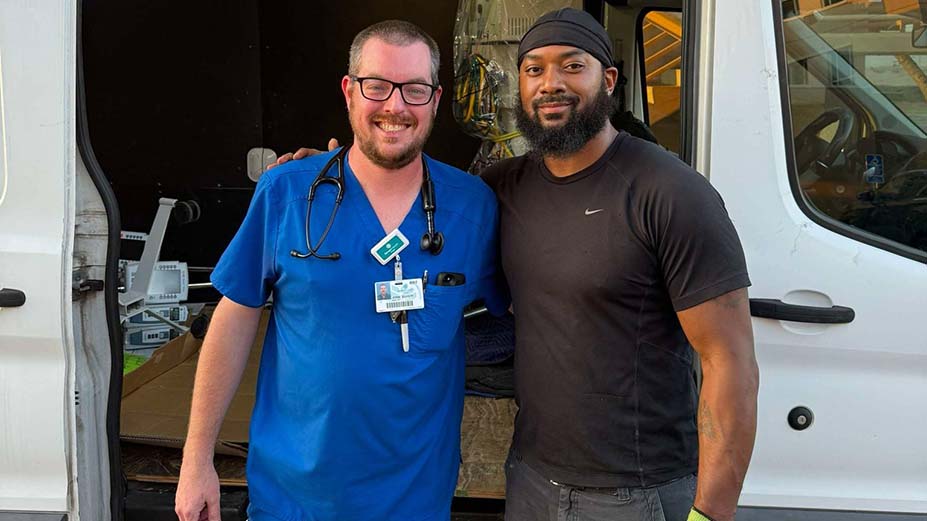
Each year between 2,000 and 2,500 babies are born at Atrium Health Floyd Medical Center. When Brahm’s Lullaby plays softly over the speakers throughout the hospital, teammates smile, knowing a team of medical experts are right there to take care of both mother and baby.
When there are complications or when a baby is born prematurely, Atrium Health Floyd Medical Center’s Level III Neonatal Intensive Care Unit (NICU) is ready. Sometimes, though, the unexpected happens.
This past March, our labor and delivery department experienced a surge of multiple births and admissions that resulted in three critical infants being admitted to the NICU. In one 24-hour period, two sets of twins were born, a 24-weeks’ gestation preemie was born and two babies were admitted to the hospital.
Two of the babies needed high-frequency oscillatory ventilation.
These systems use sound waves to vibrate the incubator, forcing the baby’s lungs to open and take in the oxygen being provided to them. Jay Shedd, director of respiratory services, describes it as a powerful subwoofer, the kind of speaker every teenage boy dreams of having in his first car, the kind that rattles every part of the car and announces to the world that he has his own soundtrack to his life.
Because these tiny babies depend on this air, Floyd’s operational standard is to keep two of the devices on hand at all times, ensuring there is a backup should something happen to the first. In the event that two are needed for use simultaneously, Floyd has an agreement with a medical supplier to rent additional units that can be delivered quickly.
In his 30 years of practicing respiratory therapy at Atrium Health Floyd, Shedd said this plan has worked seamlessly. This time, however, he and his time hit some obstacles.
The rental company didn’t have any of the units available. Jay reached out to colleagues in Navicent, but they didn’t have any spares to share. He called the Georgia Emergency Management Agency. They didn’t have any to share. The rental company reached out to its other sites and located a unit on the West Coast, but time was of the essence.
Shedd then reached out to Myra Stearnes, assistant vice president for respiratory therapy at Atrium Health in Charlotte. What happened next is a testament to the value of our integration with Atrium Health. Immediately respiratory therapy leaders inventoried the Charlotte area.
Hugh Mosely, Respiratory Therapy Director at Levine Children’s Hospital, found an available unit. The unit was placed in an Atrium Health box truck and a driver was then dispatched to Rome to deliver the oscillator to Rome overnight. It arrived at Floyd’s loading dock seven hours later.
“It wasn’t shipped via Fed Ex or DHL,” said Aimee Griffin, vice president for professional services. “It was a kind person who probably had lots of other plans for the evening, but the team in Charlotte made sure we had what we needed as quickly as possible. Then that driver turned around and drove back to Charlotte. If you’ve ever driven from Charlotte to Rome, especially in a box truck, in evening traffic – that is no simple ask.”
Shedd is a dad. He tried to go to sleep that evening but couldn’t rest.
“I couldn’t sleep that night,” he said. “This is equipment that is critical to an infant’s life.”
Without the Levine Children’s oscillator, at least one of those children would have had to be transferred to Chattanooga or Atlanta. Because of the Advocate Health family, these babies received the care they needed in the same hospital where they were born, on the same floor as their mothers.













